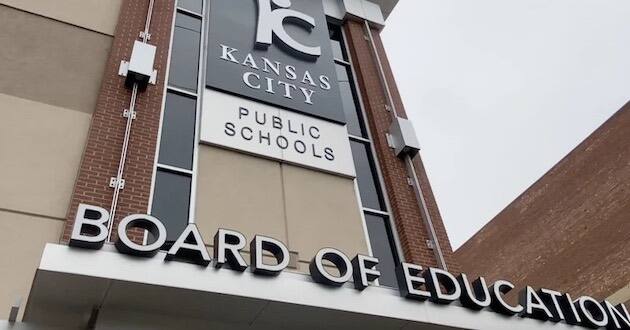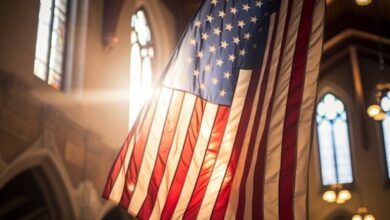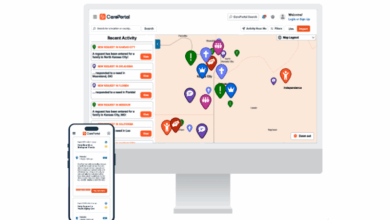These Missouri and Kansas school districts keep transgender identity from parents

Kansas and Missouri school districts have policies that do not inform parents of a child’s transgender identification, according to a parental rights organization. The districts are just some of the over 1,000 nationwide.
This month, Parents Defending Education (PDE) updated its list of school districts that have implemented policies regarding students who believe they are transgender. The policies recommend that district personnel should keep a student’s transgender status hidden from parents.
The list mentions 18,331 schools from 1,044 districts that implement the controversial policies. Included on the list are districts in Missouri and Kansas. As investigations continue, the organization says the list will grow.
“We actually released this number initially in March, and then we identified about 200 counties. … This number keeps growing across the country,” Nicole Neily, president of PDE, said in a interview with the Real America’s Voice program “Just the News, No Noise.”
“We are still getting tips that are pouring in every day,” she said.
Neily blamed state school board associations and activist groups for pushing such policies in educational institutions.
“These associations are not parents’ friends and we’re really trying to remind families of that as well,” she said. “So these are policies that are being pushed by activist groups like GLSEN and The Trevor Project that are saying the families are inherently not safe.”
Kansas has more districts implementing the policy than does Missouri.
Kansas
Belle Plaine USD 357, south of Wichita
Kansas City Kansas Public Schools
Shawnee Mission School District
Missouri
Missouri this year passed, later signed into law by Gov. Mike Parson, bills protecting children from controversial transgender therapy and genital surgery. It is also considering legislation that would prevent school districts from keeping health information, like transgender identity or suicide, from parents or guardians.
Two groups, GLSEN—pronounced “glisten”—and The Trevor Project are self-described LGBT activist organizations at the center of the policies.
GLSEN was founded in 1990 as the Gay, Lesbian, & Straight Education Network by a teacher-turned-activist who later oversaw the school drug and violence prevention program under the Obama administration. GLSEN’s guidelines for schools advise that educators keep the gender identity of students a secret from their parents.
“Staff or educators shall not disclose any information that may reveal a student’s gender identity to others, including parents or guardians and other staff, unless the student has authorized such disclosure, the information is contained in school records requested by a parent or guardian, or there is another compelling need,” it states.
The Trevor Project in 2019 published a document (pdf) called the “Model School District Policy on Suicide Prevention,” which asks school mental health professionals to “ensure that the parents’ actions are in the best interest of the student (e.g., when a student is LGBTQ and living in an unaffirming household).”
In addition, the policy also asks schools to keep a student’s sexual orientation or gender identity from parents when they are “notified of perceived suicide risk or an attempt.” Information shared with parents “should be restricted to the perceived risk of suicide or facts of the attempt,” it says.
That view has come under intense scrutiny, even from suicide prevention groups, who say parents need to know if a child is suicidal, not only for the child’s welfare but also others living in the household.
PDE maintains a list of school districts that recommend The Trevor Project as a resource.
The Trevor Project also runs the TrevorSpace chatrooms, which has been accused of allowing adult strangers to talk about sex with minors.
Parents and community leaders in Santa Ana, California, raised concerns last year about TrevorSpace.
Victor Cota, a youth pastor in Santa Ana, revealed that he saw evidence of children interacting with adults to explore genders and sexualities. The platform provides a space for such discussions without parental knowledge. Conversations can, and have, become graphic and, say opponents, in other settings would be considered illegal.
“Anyone can chat with these kids in these spaces,” he said. “I checked it out with my own eyes. I was shocked at the types of chat groups I found.”
Brianna Cota, Cota’s wife, said that “it was worse than I imagined.” The platform is a “hunting ground for sexual predators,” she said.
A poll published by PDE in March showed that 71 percent of registered voters support creating legislation that would require schools to inform parents in case their children want to change their gender identity at school.
In addition, 75 percent of voters supported legislation requiring schools to obtain parental consent before transitioning their children.
“The results of this survey simply reinforce what we at Parents Defending Education have been hearing from parents all over the country: the constant whispering at our children’s ears that we—their parents—are their enemy, is negatively impacting families everywhere,” Mailyn Salabarria, the director of community engagement at PDE, said in a statement.
–Wire services






